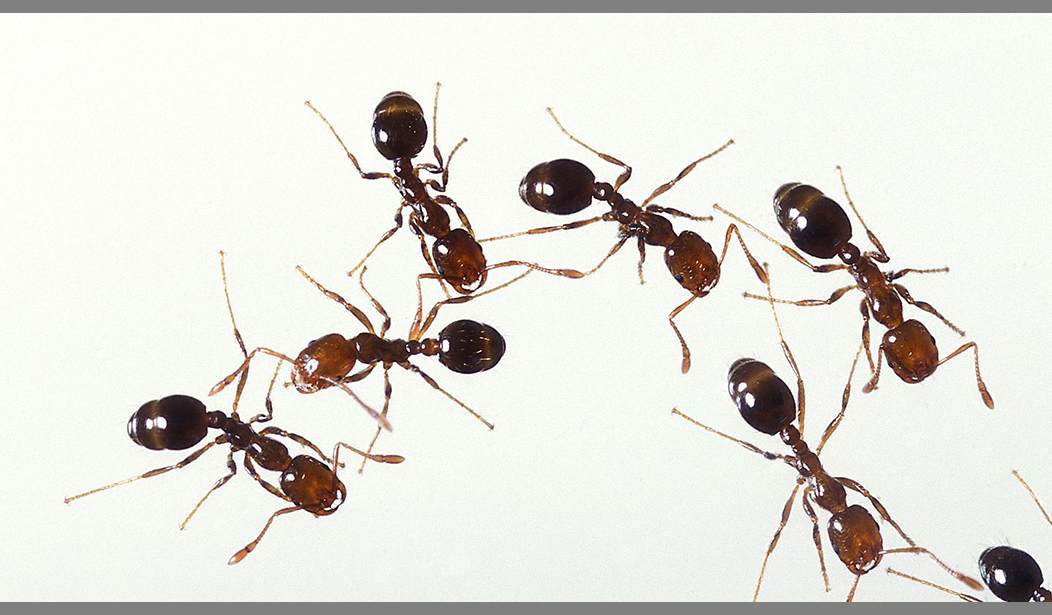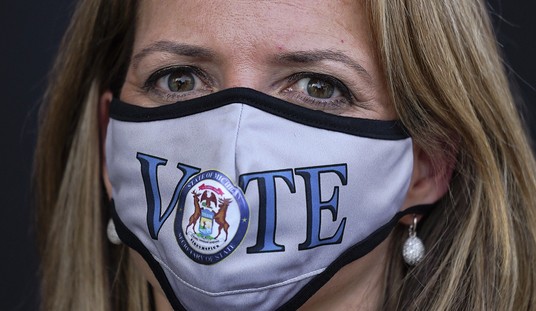True story: In the summer of 1988, after I graduated college and received my Army commission as a second lieutenant (which, as my father was fond of pointed out, made me a gentleman by an act of Congress) I had some time to kill. I wasn't due to report back on active duty in the Army for my Officer's Basic Course for almost six months, and although I was living pretty cheap in a 10x49 house trailer, just me and my dog, I still needed a job. So, leveraging my education in Biology, I spent that summer working as a pest-control inspector for the local Orkin branch.
It wasn't a bad gig. I was paid on commission, so as long as I hustled, the paychecks were pretty good. And I was rarely in the office, spending most of my time visiting prospective accounts. One of the more common pests we dealt with were carpenter ants--big, black beasts that can do a lot of damage to a wood-framed house if they get established. There were other kinds of ants, too, and suffice it to say I got to be more familiar with ants than I ever expected to.
Now, I told you that story so I could tell you this one. In Colorado, it seems, climate change is affecting ants. That's not surprising; the climate has always changed, and it's always affected the animals that live in it.
While the city of Boulder has expanded greatly since the original study, Gregory Canyon has remained a natural environment and largely unaffected by land-use change.
"This gave us an opportunity to study the isolated impacts of climate change. In many other studies, the effect of land use and climate change are often entangled," [study author Anna Paraskevopoulos, a Ph.D. student in the Department of Ecology and Evolutionary Biology at the University of Colorado Boulder] said.
While she and her team discovered some ant species that were not recorded previously in the canyon, several other ant species had expanded their habitats and dominated the sites.
The team found while the total number of ant species in Gregory Canyon had increased from what was recorded in the earlier paper, several species had expanded their habitats to a broader region and now dominated the sites. At the same time, some other ants Browne and Gregg observed had become less widespread or were even undetected.
"Across the different environments and habitats in the canyon, we're seeing the composition of ant species becoming more similar," said Julian Resasco, the paper's senior author and an assistant professor in the Department of Ecology and Evolutionary Biology.
While this is interesting, it should be noted that this is a locally confined study, examining only a few species; it's also an area where species can drift up or down in altitude on the slopes as conditions change. So nothing about this conclusion is surprising, nor should it be cause for alarm.
See Related: The View's Sunny Hostin Blames Earthquakes and Solar Eclipse on Climate Change
'Inept Organization': Cringe Meters Explode After Amtrak Twitter Account Goes Woke on Climate Change
Here's the thing about ants: They aren't going anywhere. They are, literally, almost everywhere on the planet, except for Antarctica, Greenland, and a few of the more remote islands in the Phillipines chain and Polynesia. They are enormously adaptable and amazingly successful; they have been around for at least 90 million years, and will probably be around long after we humans have rung down the curtain and joined the Choir Invisible.
There are, at best estimate, 20 quadrillion ants on Earth. For perspective, that is 2.5 million ants for every man, woman, child, gender-neutral, and five-spirit otherkin in the world. The total biomass of ants on Earth outweighs every mammal and bird on the planet. Think about that for a moment, and try to suppress the inevitable shudder. Earth is, quite literally, the Planet of the Ants.
The Gregory Canyon study concludes:
"In response to climate change, species are changing the ranges where they're occurring. Some of them are spreading and becoming winners, while others are crashing and becoming losers. This work helps us understand how those communities reshuffle, which could have implications on how ecosystems function," Resasco said.
In other words, yes, the climate changes, and wonder of wonders, populations adapt. At the end of the last Ice Age, there was an enormous reshuffling of life in North America, due to that rather dramatic change in the climate. That's why we don't see many Columbian mammoths or saber-toothed cats out and about these days, which, frankly, is just as well.
The climate has always changed, and it always will. Humans, yes, have some impact, but in the grand scheme of things, it's not enough to toss away our modern technological lifestyle. Through most of this planet's 4.5 billion year history, it's been warmer than it is now, and as I am fond of pointing out, it's the height of human hubris to assume we are to determine what the planet's "correct" temperature range is.
As for the ants: Don't give them another thought. They'll be showing up at people's picnics as long as people are having picnics, and they'll be around long after that.















